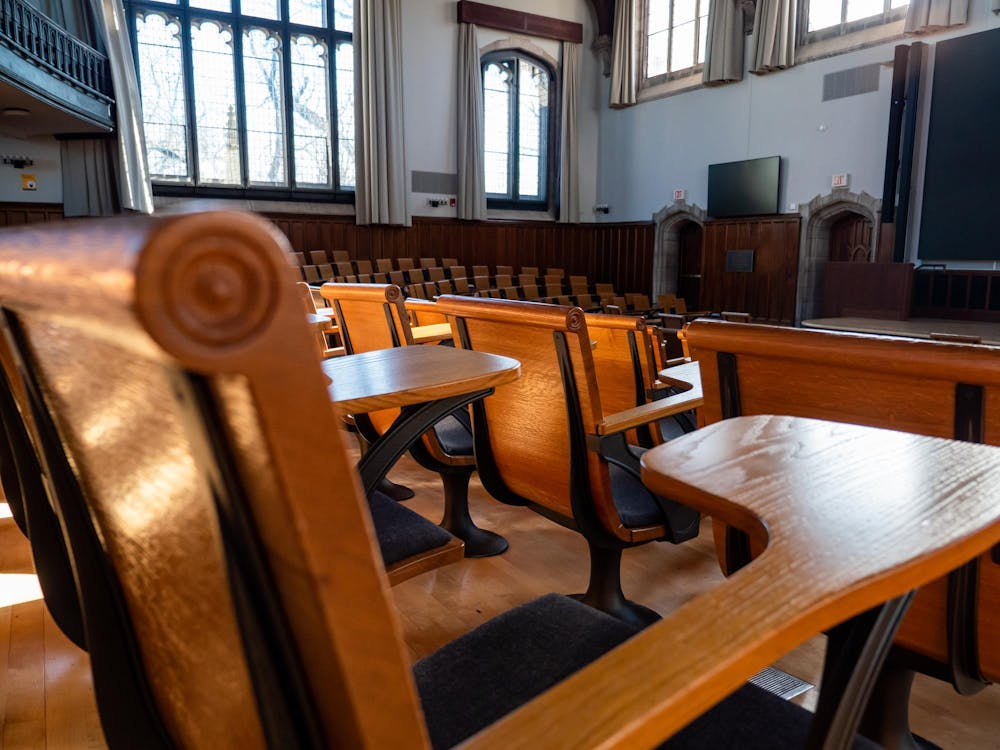At dinner the other night, I found myself talking to one of Peter Singer's old classmates. The man said that during Singer's university days in Melbourne, he was "reserved and thoughtful" but also into general student radicalism. "Not so much the vegetarian part then," the classmate added, "but definitely the Vietnam War protests."
Thirty years later, the tradition of student radicalism is still alive at Melbourne "Uni" as they call it here. The war is over, but now the radicals have a new enemy. His name is John Howard, and he happens to be Australia's prime minister.
Their litany of griefs goes something like this. Before Howard's Liberal Party (the "Libs" are the conservatives here) gained power, higher education was either "free" (unless you pay taxes) or very cheap — with the minimal fees going in part to support the student union (yes, they're unionized here). Then came the introduction of the Higher Education Contribution Scheme (HECS). Under this program, students go to the university for minimal fees up front, and pay back a percentage of their education costs once they earn more than $20,000 a year. Now, under Howard, these fees have risen so that students must pay back the equivalent of about $16,000 interest-free, after graduation for a full university education.
And they're hopping mad about this.
But this isn't the extent of the government's educational sins. Public universities — and they're almost all public here — have suffered some funding cuts. To make up the money, Melbourne Uni is constructing "Melbourne Uni Private" — a section of the university that will enroll more business students who pay up front. Many of these students have already been in the work force, and so their employers will pay their tuition.
And the students are mad about this too.
Now it seems to me, the outside American observer, that if your Uni is suffering budget cuts the first thing you'd want would be more tuition-paying students. They insulate you against the financial effects of the government's decisions.
But no, fee-paying students "corrupt" the university. Private universities are only interested in making money and enroll only the very rich, I learned on a camping trip populated by the Green Left types.

"Well, that's not entirely true in the States," I said. "Lots of private colleges offer financial-aid scholarships."
They seemed incredulous. "Well, what is the quality of those types of institutions?" one boy asked me disparagingly.
Um, Princeton? But the public-private situation is reversed here. They believe anything public to be automatically better than anything private. The student union decided to protest Melbourne Uni Private, and demand "free education for all."
So the union banded with the Students for Socialism club (yep, they've got that too) and plastered the university with posters. They put stickers on bathroom stall walls to catch captive audiences. I was recruited for the protest by a girl waving a red flag, who was also putting up flyers insisting Cuba might be a democracy. Curious, on the appointed day, I went to see what the Red Guard was up to.

Not much, really. Melbourne Uni has 30,000 students, and despite a month of notice, maybe 200 students attended. There were probably more policemen guarding the Melbourne Uni Private construction site than there were students. They waved their red flags, shouted obscenities at administrators, spray painted a few buildings, decried how the rest of the students were "brainwashed into accepting capitalism" and then went home.
But the next day, they were back again with their "Karl Marx: Face of the Future?" signs. There were other signs too — those decrying Voluntary Student Unionism, a new policy that says students shouldn't have to pay to support the union's political activities. But this means student fees now can't go directly for the magazine Farrago, which publishes such gems as a piece on the sexism inherent in the Little Miss children's books ("Patriarchy and anorexia begin at age four."). A pity, really, but maybe now they'll have to survive on revenue from the union food co-op, a "non-hierarchical group that makes decisions based on consensus. Everyone gets to voice their ideas and suggestions. These are work-shopped until everyone in the group is happy with the decision made." Whee! Sign me up. Or maybe I'll just go to the meeting and they can "workshop" my idea that all this socialism nonsense is just the last gasp of a dying ideology. Student radicals always need their causes, but given the small turnout for the day of action, it appears the revolution won't be coming soon, even in Australia. Laura Vanderkam is a Wilson School major from Granger, Ind. She is currently studying abroad in Australia and can be reached at laurav@princeton.edu.







